Speakers
Conference
Opening Performance
- Date and Time: November 1 (Fri), 10:30 a.m. – 11:00 a.m.
- Venue: Hall B5
- Performer
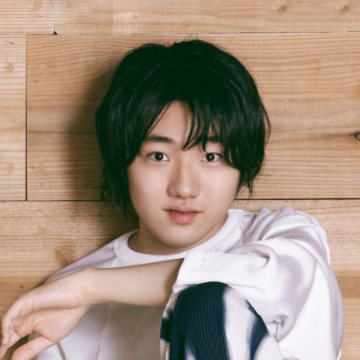
- Kyle Kihira
-
- Pianist
- Composer
- Born in 2001. From early childhood, Kyle Kihira expressed the sounds of wind and birds in musical notes. As he became fascinated with various genres of music—rock, jazz, classical, and folk music—they independently learned music theory and composition. Without even touching a keyboard, he developed a unique style of composing, creating thousands of songs. Despite dealing with developmental disabilities and sensory hypersensitivity, their original sound and exceptional technique have earned them awards both domestically and internationally. He gained attention for his collaborations with artists such as MISIA and Masashi Sada, as well as appearances in various media. He have expanded his career, including performing music at the opening ceremony of the Tokyo 2020 Paralympic Games and composing film scores.©Yuji Ueno
Closing Performance
- Date and Time: November 3 (Sun, National Holiday), 5:30 p.m. - 6:00 p.m.
- Venue: Hall B5
- Presenter
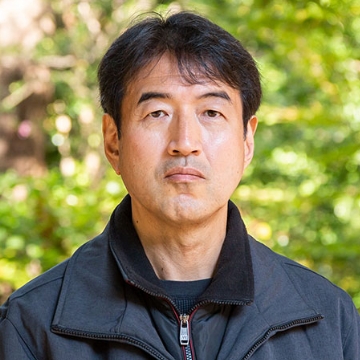
- Kiyoshi Furukawa
-
- Composer
- Professor at the Department of Intermedia Art, Tokyo University of the Arts
- Born 1959 in Tokyo, Japan. Studied composition with I. Yun and G. Ligeti at the Music Academy in Berlin and Hamburg. Guest composer at Stanford University, USA.
Artist in residence at the ZKM Center for Art and Media Technology in Karlsruhe, Germany. He has been awarded numerous awards and scholarships. Since 2000 he has been a Professor at the Tokyo National University of the Arts.
Invited Talk
Between different generations and cultural diversity: A challenge?
- Date and Time: November 1 (Fri)1:00 p.m. – 2:00 p.m.
- Venue: Hall B5
- Speaker
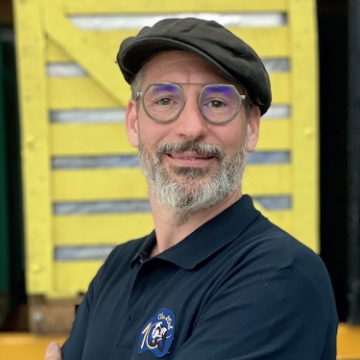
- David de Keyzer
-
- Director of CinéSourds & Artistic Director of Festival Clin d'Oeil
- David de Keyzer is a recognized personality in the world of the Deaf for its dynamism and its way of defending the Deaf Culture in France and in the world. Having grown up in the world of image. Since 2005, he made several documentary films for the French emission « L’Oeil et la Main » in the Channel France 5. In 2000 he created the NGO company CinéSourds whose primary objective is to distribute DVD documentary films and theater recordings. In 2003, David founded the International Clin d'Oeil Festival, aimed to defend the creation and expression of deaf artists in all artistic fields. Today, as a consultant, he promotes the development of culture and sign language around the world through university, conferences and workshops.
Keynote Speech
Creating Spaces for Being Together: Lessons from Dialogue and Outreach
- Date and Time: November 1 (Fri)2:15 p.m. – 3:15 p.m.
- Venue: Hall B5
- Speaker
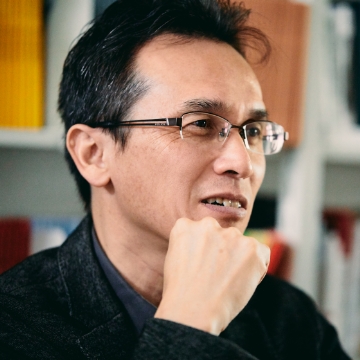
- Shinji Kajitani
-
- Professor of Philosophy and Intercultural Studies at the University of Tokyo
- director of the University of Tokyo Center for Philosophy (UTCP).
- Shinji Kajitani completed his Ph.D. at Human- and Environmental Studies of Kyoto University. His main research field is phenomenology, cultural studies and medical history. In recent years, he has been engaged in activities to create "places to think together" at schools, companies, and local communities, pursuing a new genre of "inclusive philosophy." His main works are: Basic Problems of the Phenomenology of Hermann Schmitz (2002), and What is it to Think? – An Introduction to Philosophy for People Ages 0 to 100 Years (2018).
Sessions
Session 1
Working People and Arts for Well-being
- Date and Time: November 1 (Fri)3:30 p.m. – 5:30 p.m.
- Venue: Hall B5
In Japanese society, where the recognition of individuality and "otherness" is often lacking, there are many people who struggle with the pressure to conform. In such a society, could art have a role in creating spaces and activities where everyone can find a sense of well-being? Along with a guest from Australia who has an impressive track record in both practice and research on the relationship between well-being and art, members from various sectors in Japan will discuss the role of art and culture in promoting well-being.
- Speaker
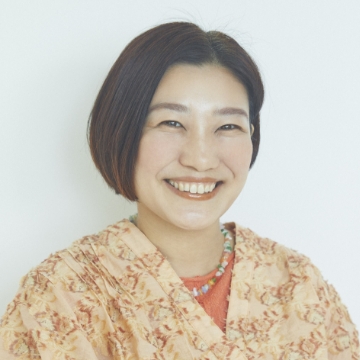
- Yoshie Kurisu
-
- Director of SLOW LABEL
- Stage Advisor of the Opening and Closing Ceremonies of the Tokyo 2020 Paralympics
- While crossing the worlds of art, design, and entertainment, she has been involved in many citizen-participatory projects that connect people and communities from different cultures and attempt social change through dialogue and collaborative processes. Artistic director of Slow Label, a certified NPO; general director of the Yokohama Para triennale (2014-2020); stage advisor for the opening and closing ceremonies of the Rio-Tokyo 2020 Paralympics; board member of Kamiyama Marugoto College of Technology; and Thursday commentator for TBS “Hiruobi”. She received the 65th Yokohama Culture Award “Culture and Art Encouragement Prize”.
- Speaker
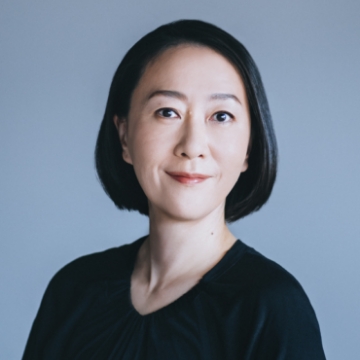
- Maholo Uchida
-
- Curator, Exhibition Producer
- Director of project for the Center for Cultural Innovations at TAKANAWA GATEWAY CITY, of East Japan Railway Company.
- Planning Director for Osaka/Kansai Expo. Future of Life Pavilion.
- Specialized in the combined field of art, technology, and design, worked at the Miraikan National Museum of Emerging Science and Innovation, and curated several exhibitions. Has participated in various museums, and awards as co-curator, jury, and advisor such as MoMA, Barbican Centre, and Good Design Award.
At TAKANAWA GATEWAY CITY, developed by East Japan Railway Company, she will lead the launch of a new museum that connects knowledge and beauty, history and the future, with the mission of "transporting culture for the next 100 years of future".
- Speaker
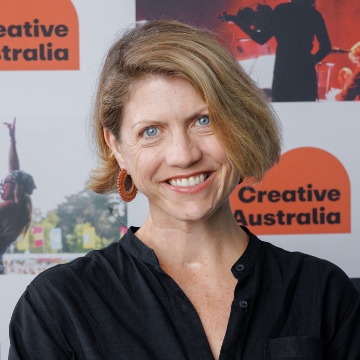
- Georgie McClean
-
- Executive Director, Development and Partnerships at Creative Australia
- Dr Georgie McClean is the Executive Director of Development and Partnerships at Creative Australia. She oversees research, evaluation, impact measurement, professional development and private investment, including fundraising capability building and new partnership models. She looks for opportunities to extend the public value of the cultural and creative industries with new partners in new ways.
Georgie has been a media/ arts leader who has researched and shaped creative industries’ dynamics, programs and policy for 20 years. Formerly the Acting CEO of AFTRS (the Australian Film, Television and Radio School) where she led Strategy and facilitated new thinking about Australian storytelling, industry practices and innovation. She also headed up Strategy and Communications at Screen Australia, and prior to that, was Manager of Policy and Research at Australia’s multicultural public broadcaster SBS.
- Speaker
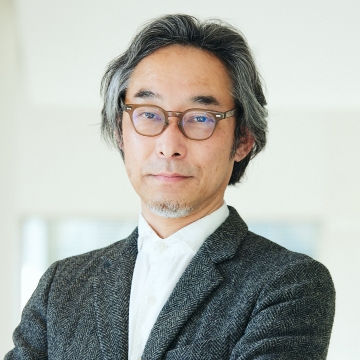
- Tomoharu Matsuda
-
- Planner
- Poet
- Tomoharu Matsuda has been involved in a wide range of planning and direction, including the “Rendez-Vous Project,” a collaborative project between companies and creators, “Dialogue in the Dark Towel,” in which visually impaired people were involved in its development, “Dogo Onsenart,” an art festival in Dogo Onsen, and “Tenkei(Typical) Project,” an alliance brand of excellent Japanese factories. He is a member of the jury for the Good Design Award, a part-time lecturer at Tama Art University and Tokyo University of Science, a senior planner at Spiral, and a planning director at Tokyu Sekkei Consultants. He is also the manager of the poetry collective “oblaat”.
Session 2
Life, Art, and Education
- Date and Time: November 2 (Sat)10:00 a.m. – 12:00 p.m.
- Venue: Hall B5
This session will discuss the social role of arts and culture, particularly the need for activities that impact everyday life. Art sectors, such as art universities (as educational spaces) and museums (as practical spaces), collaborate with fields like welfare, healthcare, and technology to co-create within communities. This session will explore the future roles and activities required for arts and culture to create these collaborative spaces.
- Speaker
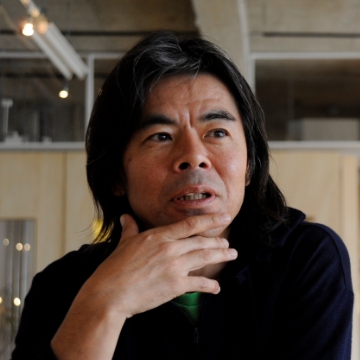
- Katsuhiko Hibino
-
- President, Tokyo University of the Arts
- Katsuhiko Hibino is a Japanese artist born in Gifu Prefecture in 1958. He gained recognition in the 1980s for merging society with art. Hibino has exhibited internationally, including at the Sydney and Venice Biennales, and engages in diverse, interdisciplinary activities. He conducts community-based workshops and art projects. Currently, Hibino is the director of the Museum of Fine Art, Gifu and Kumamoto Prefectural Museum of Art, as well as the president of Tokyo University of the Arts, where he established the Center for Arts and Future Research to explore the potential of contemporary art.
- Speaker
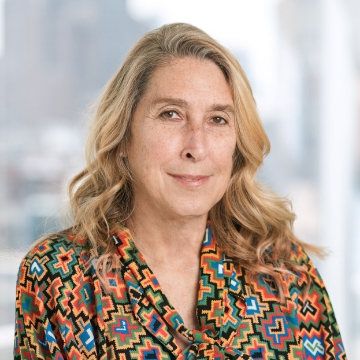
- Lisa Phillips
-
- Toby Devan Lewis Director of the New Museum
- Since 1999, Lisa Phillips has been the Toby Devan Lewis Director of the New Museum and she has turned the Museum into a critically acclaimed, leading international cultural destination. She conceived and realized the Museum’s first dedicated building, which opened on the Bowery in 2007, designed by SAANA. The Museum quickly became a catalyst for the transformation of the Bowery neighborhood, and inspired Phillips to co-found IDEAS CITY, an international program exploring the future of cities with culture as a driving force, as well as NEW INC, the first museum-led incubator for art, technology, and design. She has been recognized as one of New York Magazine's "Top 40 New Yorkers" and Crain’s "Top 100 Business Women of the Year.©Christine Rivera
- Speaker
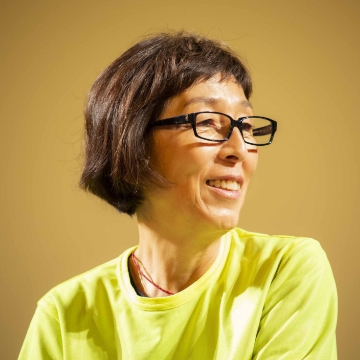
- Kazuyo Sejima
-
- Director, Tokyo Metropolitan Teien Art Museum
- Born in Ibaraki Japan, Kazuyo Sejima received a degree in architecture at the Japan Women's University in 1981. In 1987 she opened her own studio in Tokyo and then in 1995, together with Ryue Nishizawa, she founded SANAA. In 2010 Kazuyo Sejima was appointed director of the 12th International Architecture Exhibition of Venice Biennale. She is currently a professor at the Polytechnic University of Milan, an Emeritus professor at Yokohama National University. SANAA’s main works include the 21st Century Museum of Contemporary Art in Kanazawa, New Museum, and the Louvre-Lens.©Kohei Omachi
Session 3
Social Participation of Cultural Organizations
- Date and Time: November 2 (Sat)3:30 p.m. – 5:30 p.m.
- Venue: Hall B5
Multicultural coexistence is a common societal issue worldwide, and Tokyo is no exception. When cultural organizations address these social challenges, they may begin with establishing new perceptions and values for art and connecting with communities. How should cultural organizations in a metropolis like Tokyo tackle the challenges of multicultural coexistence? Guests with experience in museums and art festivals in metropolitan areas will discuss the actions Tokyo should take moving forward.
- Speaker
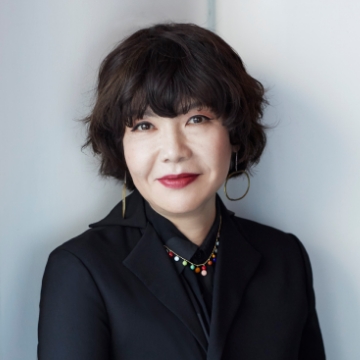
- Mami Kataoka
-
- Director, Mori Art Museum
- Kataoka Mami joined the Mori Art Museum in 2003, taking on the role of Director in 2020. She has also taken on the position of Director of the National Center for Art Research since April 2023.
Beyond Tokyo, Kataoka has held position at the Hayward Gallery in London as International Curator from 2007 to 2009, while she has also acted as Co-Artistic Director for the 9th Gwangju Biennale (2012), Artistic Director for the 21st Biennale of Sydney (2018) and Artistic Director for the Aichi Triennale 2022. Kataoka served as a Board Member (2014-2022) and the President (2020-2022) of CIMAM [International Committee for Museums and Collections of Modern Art].©Ito Akinori
- Speaker
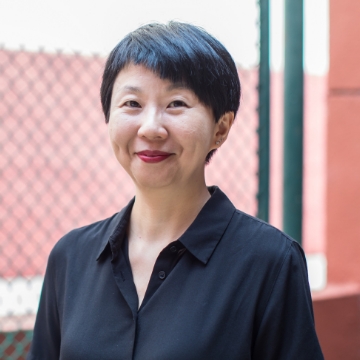
- June Yap
-
- Director, Curatorial & Research, Singapore Art Museum
- Supervised curation and program planning at the Singapore Art Museum. Previously served as the Guggenheim UBS MAP Curator, Deputy Director of the Singapore Museum of Contemporary Art, and Curator at the Singapore Art Museum. Co-Artistic Director of the Singapore Biennale 2022. Notable exhibitions include "Natasha, The Gift," "Nam June Paik - The Future is Now," and "No Country." Has extensive knowledge and insight into contemporary art practices and discourses in Southeast Asia.
- Speaker
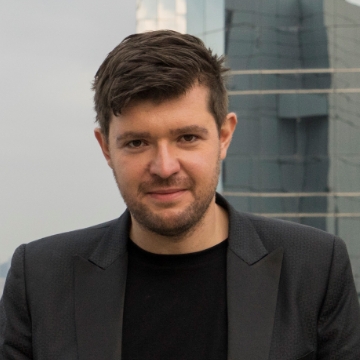
- Cosmin Costinas
-
- Senior Curator of Exhibition Practices, HKW Berlin
- Co-Artistic Director, 24th Biennale of Sydney
- Cosmin Costinas (b. 1982, Romania) is the Senior Curator of Exhibition Practices at HKW, Berlin (since 2022) and co-Artistic Director of the 24th Biennale of Sydney (2024). He was the Director of Para Site, Hong Kong (2011–22); Artistic Director of Kathmandu Triennale 2077 (2022); co-curator of the Romanian Pavilion at the 59th Venice Biennale (2022); Curatorial Adviser of the Aichi Triennale (2022); Curator of Dakar Biennale (2018); Guest Curator at the Dhaka Art Summit (2018); Co-curator of the 10th Shanghai Biennale (2014); Curator of BAK, Utrecht (2008–11); Co-curator of the 1st Ural Industrial Biennial, Ekaterinburg (2010); and Editor of documenta 12 magazines, Vienna/Kassel (2005–07), among others.
Session 4
Finding Understanding in Not Understanding
- Date and Time: November 3 (Sun, National Holiday)10:00 a.m. – 12:00 p.m.
- Venue: Hall B5
To achieve a society of coexistence, where empathy and respect for others are fundamental, we should not despair over not understanding one another, but instead begin with dialogue based on that reality. What is needed to acquire the means to overcome the various barriers that stand before empathy? Speakers from the fields of care, expression, and social practice will engage in dialogue, sharing personal experiences to explore the nature of empathy.
- Speaker
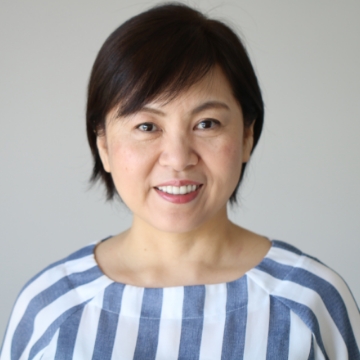
- Kiyoe Shimura
-
- Birth Therapist
- President, Dialogue Japan Society
- Kiyoe Shimura focuses on terminal care and grief care. She supports the patient and family in fulfilling their wishes through dialogue. Her idea that life does not end with death, but rather passes the baton to the next life, has attracted the attention of many medical professionals.
In 1999, she encountered Dialogue in the Dark, and since then she has been conveying the importance of dialogue through entertainment.
Author of “Yale ha kienai (Yale will not disappear)”, “Inochi no baton (Baton of Life)”, “Sayonara no saki (Beyond the goodbye)”, and many others.
- Speaker
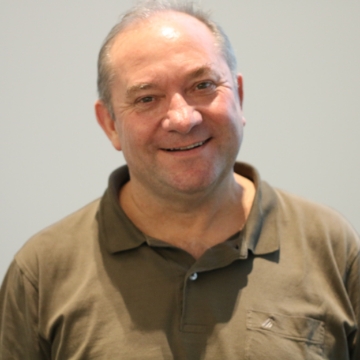
- Andreas Heinecke
-
- Founder of Dialogue Social Enterprise
- Andreas Heinecke became deputy director of the Foundation for the Blind in Frankfurt in 1988 and introduced Dialogue in the Dark. He created the first electronic newspaper for the blind (1990) and published electronic books (1992-1994). In 2000, he opened the first permanent Dialogue in the Dark exhibition in Hamburg, now known as Dialoghaus.
Andreas has won various international awards, including being the first European Ashoka Fellow (2005) and a Global Fellow of the Schwab Foundation (2007). He co-created Dialogue in Silence (2000) and Dialogue with Time (2014), and teaches Social Business at the European Business School. He remains a leading innovator in breaking communication barriers through Dialogue Social Enterprise.
- Speaker
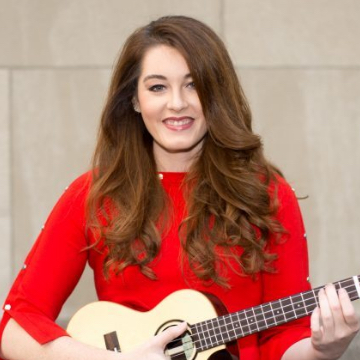
- Mandy Harvey
-
- Singer, Songwriter
- Mandy Harvey is a deaf American jazz singer and songwriter. In 2011, Mandy won VSA’s Top Young Soloist Award. As a successful performer touring thought the U.S. in 2017, she became a household name after winning the 4th place on America’s Got Talent. In addition, Harvey is an Ambassador of the nonprofit organization No Barriers where she inspires and assists others to break through their personal barriers.
Closing Session
Culture and Home: Actions to Create Our Own Home
- Date and Time: November 3 (Sun, National Holiday)3:30 p.m. – 5:30 p.m.
- Venue: Hall B5
Based on the four sessions, this discussion will focus on the next vision needed to create places where people feel at home where they belong.
- Speaker

- Shinji Kajitani
-
- Professor of Philosophy and Intercultural Studies at the University of Tokyo
- director of the University of Tokyo Center for Philosophy (UTCP).
- Shinji Kajitani completed his Ph.D. at Human- and Environmental Studies of Kyoto University. His main research field is phenomenology, cultural studies and medical history. In recent years, he has been engaged in activities to create "places to think together" at schools, companies, and local communities, pursuing a new genre of "inclusive philosophy." His main works are: Basic Problems of the Phenomenology of Hermann Schmitz (2002), and What is it to Think? – An Introduction to Philosophy for People Ages 0 to 100 Years (2018).
- Speaker

- David de Keyzer
-
- Director of CinéSourds & Artistic Director of Festival Clin d'Oeil
- David de Keyzer is a recognized personality in the world of the Deaf for its dynamism and its way of defending the Deaf Culture in France and in the world. Having grown up in the world of image. Since 2005, he made several documentary films for the French emission « L’Oeil et la Main » in the Channel France 5. In 2000 he created the NGO company CinéSourds whose primary objective is to distribute DVD documentary films and theater recordings. In 2003, David founded the International Clin d'Oeil Festival, aimed to defend the creation and expression of deaf artists in all artistic fields. Today, as a consultant, he promotes the development of culture and sign language around the world through university, conferences and workshops.
- Speaker
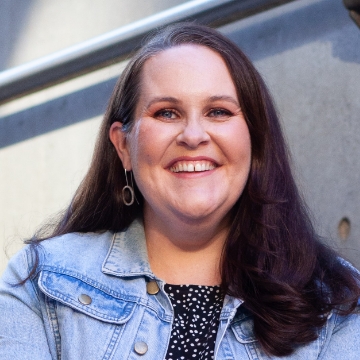
- Morwenna Collett
-
- Consultant and Director
- Morwenna Collett runs a national consultancy, helping arts organizations improve through strategy, research, and training. A disabled person herself, she brings both her personal experience and professional expertise, having worked in government, non-profit, and university sectors.She has also chaired accessibility panels for the Sydney Festival and Sydney Fringe, and has served as director of the Australia Council for the Arts. She completed a Churchill Fellowship, studying inclusive music programs and festivals in the USA and UK.
- Speaker
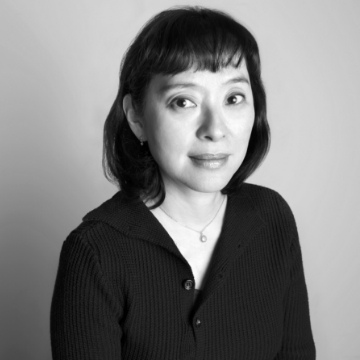
- Sumiko Kumakura
-
- Dean, Professor, Graduate School of Global Arts, Tokyo University of the Arts
- Dean of the Graduate School of Global Arts; Professor in Art Management and Cultural Policy Studies. BA in Université de Paris X, MA in Keio University (Art History and Aesthetics). Producer of numerous regional art projects such as the Toride Art Project, Kitamoto Vitamin, and Art Access Adachi: Downtown Senju––Connecting through Sound Art. She has also acted as an adviser on cultural policy for the Agency for Cultural Affairs and the Tokyo Metropolitan Government.
Case Studies
- Date and Time: November 2 (Sat)1:00 p.m. – 3:00 p.m.
- Venue: Hall B5
Case Study 1
Both Sides, Now: a good place to live is a good place to prepare for dignified dying
Both Sides, Now long-running project that has different iterations over the last ten years, aims to engage Singaporean to think about the dignity of dying and death. In this presentation, it will focus on one iteration in 2019 which involved the community in a place making project to make their communal space a living and active place, and in the process reflect on their legacies and end of life processes.
- Speaker
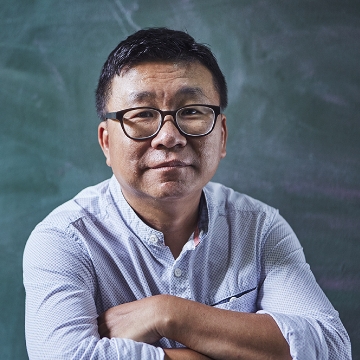
- Kok Heng Leun
-
- Artist
- Founder of Drama Box (Singapore)
- Heng Leun is a prominent theatre director, playwright, dramaturg, and educator, known for engaging the community on various issues through the arts, championing civic discourse across different societal segments.
As Artist, Founder of Drama Box (Singapore), notable directorial works over his three-decade career include Drift, Trick or Threat, and Underclass; site-specific theatre ubin and Project Mending Sky, Both Sides, Now, which explores end-of-life conversations, and the recent Air, about the dispossession of the indigenous Malays and Orang Seletar of Singapore. National awards received include the Young Artist Award, Cultural Fellowship, and Cultural Medallion. He also served as a Nominated Member of Parliament (2016– 2018), representing the arts sector.
Exploring ONGAKU –Music for the Deaf
This presentation will focus on research into "music for the deaf," exploring the tension and flexibility in Japanese sign language, building upon the film LISTEN.
- Speaker
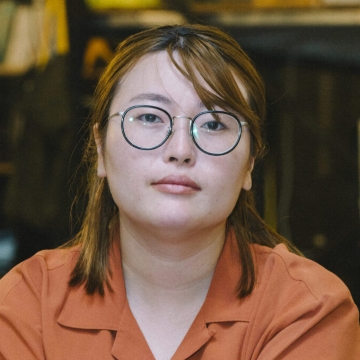
- Eri Makihara
-
- President, Japan Deaf Arts Association
- Filmmaker
- Artist
- Eri Makihara practices emergence through the physical senses of the self/deaf community with a focus on sight and sign language, including the art documentary film “LISTEN Listen (2016)” (co-directed with Shizuku Sakai) about the “music” of the Deaf. In addition to directing the Tokyo International Deaf Film Festival and organizing the Deaf Actors Course, she also co-directs the sign language-based working place “5005” and strives to develop human resources for Deaf and hard-of-hearing people and to create a community where Deaf and hearing people can be together.©Hiroshi Ikeda
The Architect Creating Spaces to Feel at Home
This case study will explore how architecture plays a role in creating culture, carefully reflecting on community-based living, its practices, and relationships, with a focus on the example of the "Kasugadai Center Center" senior care facility.
- Speaker
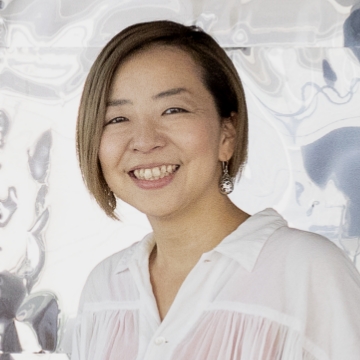
- Chie Konno
-
- Architect
- Born 1981 in Kanagawa, Japan, Chie Konno graduated from Tokyo Institute of Technology in 2005 with a Bachelor's degree in Architecture.
She was a scholarship student at the Swiss Federal Institute of Technology from 2005-06 while in graduate school, and received her doctorate in engineering from the Tokyo Institute of Technology in 2011. Major works include “Koyo Loggia House” (2012 Tokyo Society of Architects and Building Engineers Award for Residential Construction), “Kasugadai Center Center” (2023 Architectural Institute of Japan Award), etc.©yasuyuki Takagi
- Date and Time: November 3 (Sun, National Holiday)1:00 p.m. – 3:00 p.m.
- Venue: Hall B5
Case Study 2
The Methodology of KINO Meeting
This case study will feature a screening of the "New Tokyo Tour," created as part of the "KINO Meeting," a collaborative project involving individuals of diverse backgrounds living in Japan. The director and project leaders will discuss the potential of this methodology.
- Speaker
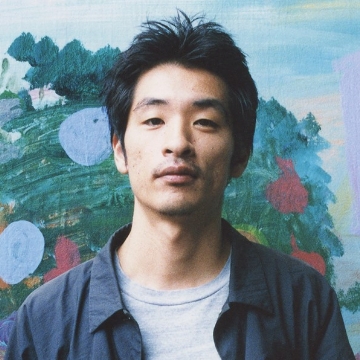
- Kota Abe
-
- Designer
- The major of the Cultural Anthropology
- Born in 1986. After graduating from University of the Arts London and working at Hiromura Design Office, Kota Abe began working with design and cultural anthropology as his guiding principle. In 2018-19, he conducted research on local street culture in Sao Paulo, Brazil, and presented the film “Who owns the city?”. In recent years, he has found potential in collaborating with others from different backgrounds, and is developing a film production project with people of diverse roots called “KINO Meeting”.
- Speaker
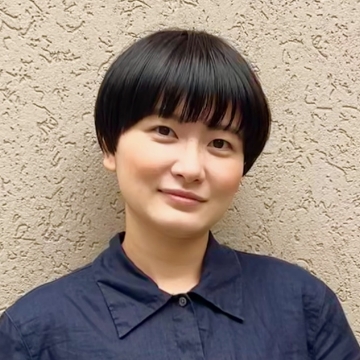
- Ushin Tei
-
- Translator
- Filmmaker
- Born in Taipei, Taiwan. After graduating from Taipei National University of the Arts with a degree in film studies, Ushin Tei came to Japan in 2016. She has been involved in theater, film, and other art projects with urban and cross-cultural themes. In recent years, she has been conducting acting workshops and research translation and production interpretation for art works. She directed the film “New Tokyo Tour”
Breakout Sessions
Breakout Session 1
Connecting Multicultural Societies through Theater
- Date and Time: November 2 (Sat)10:00 a.m. – 11:30 a.m.
- Venue: Conference Room G502
Learn about the methods and case studies from projects in the Mannheim National Theater in Germany, which involve citizens from diverse backgrounds. This session will discuss how to create environments for theater workshops that promote mutual understanding and support across language and cultural differences, based on initiatives at the Tokyo Metropolitan Theatre, with participation from individuals with overseas roots.
- Speaker
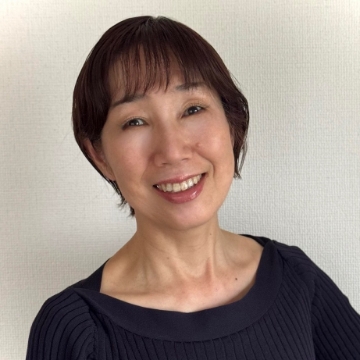
- Sumiko Tamuro
-
- Chief of Educational Programs Section, Tokyo Metropolitan Theatre
- Aiming at creation transcending the boundaries of race, language, and genre, Sumiko Tamuro founded the theatrical unit Sin Titulo in 2004 to perform at the Foreign Correspondents' Club of Japan. In 2008, at the request of Kani City Cultural Creation Center, she launched the Multicultural Coexistence Project intended for promoting exchange between foreign residents and Japanese people, and has listened to the voices of participants for five years to create a documentary drama. Since 2014, she has been in charge of HR development and education at the Tokyo Metropolitan Theatre, where she develops theatrical workshops and HR development programs toward a multicultural society.
- Speaker
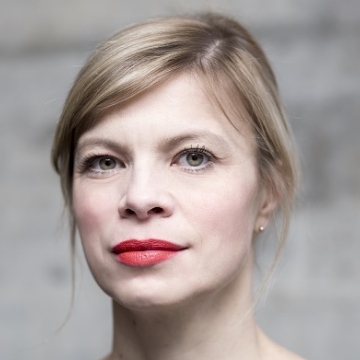
- Beata Anna Schmutz
-
- Artistic Director, Citizens' Ensemble at the Mannheim National Theater
- Beata Anna Schmutz was born in Gdansk, Poland.She is the artistic director of theater-, art- and media-projects and education programs. From 2005 to 2016 she worked in the field of cultural education in Heidelberg, where she was head of the arts and theater department of a municipal institution. In 2005 she founded the theatre and performance group RAMPIG, where she works as a director and dramaturge. From 2016 to 2018 she was head of the department Volkstheater at the Badisches Staatstheater Karlsruhe. Since 2018 she is the director of the Mannheimer Stadtensemble at the Nationaltheater Mannheim. She is a board member of the Dramaturgische Gesellschaft since 2016.©Felix Gruenschloss
- Moderator
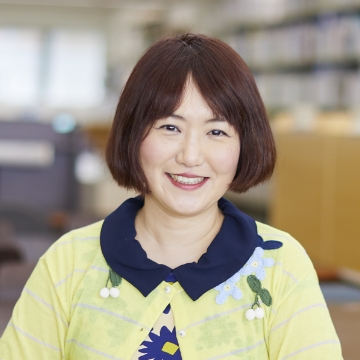
- Min Jinkyung
-
- Associate Professor, Arts and Culture Policy, Hokkaido University of Education Iwamizawa Campus
- Born in Seoul, Korea. Min Jinkyung worked as an assistant director and producer at the Korea National Opera, and then came to Japan in 2000 as a trainee invited by the Agency for Cultural Affairs. After that, she entered graduate school at the Tokyo University of the Arts and completed the Graduate Course in Applied Musicology (doctor’s degree). She has been employed by Hokkaido University of Education since 2006. In recent years, she has extended her research into various fields, including multiculturalism, intermediary organizations, and artist welfare schemes. She also serves as a member of executive boards of the Japan Association for Cultural Policy Research and Japanese Society for Musical Arts Management. The Hokkaido Arts Foundation awarded her 2020 Incentive Prize.
Breakout Session 2
Designing Support for Expanded Theater Experiences and Participation
- Date and Time: November 2 (Sat)12:30 p.m. – 2:00 p.m.
- Venue: Conference Room G502
The session will introduce examples of theaters striving to improve accessibility, such as the Tokyo Bunka Kaikan Social Inclusion Project Team, the "Relax Performance" viewing support efforts, and the "Company Grande" of the Saitama Arts Theater. It will explore how these efforts expand the overall experience.
- Speaker
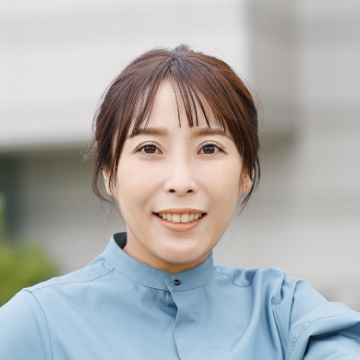
- Tomoko Tsukihashi
-
- Program Chief of Social Inclution Section, Tokyo Bunka Kaikan
- As a leader of the Social Inclusion Project Team at the Tokyo Bunka Kaikan, Tomoko Tsukihashi works to improve the accessibility of the Tokyo Bunka Kaikan. Her aim is to provide all people, regardless of age, disability or social handicap, with opportunities to participate in music appreciation and creative music experiences, as well as to construct an environment in which diverse people can actively participate in creating a new culture.
- Speaker
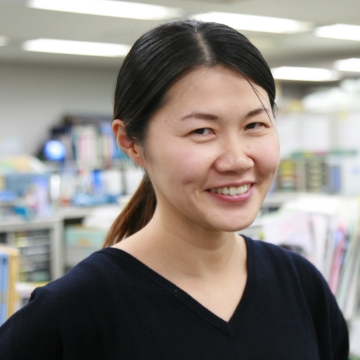
- Sachiko Ukegawa
-
- Associate Director, Production Department, Saitama Arts Theater
- Joined Saitama Arts Theater in 2004, Sachiko Ukegawa has been involved mainly in dance productions of the theater for some 20 years. Her commitment to dance ranges across various levels of artistic engagement, from international productions by the world’s leading choreographers to collaborations with local community. She was also an instrumental in the launch of “World Gold Theater”, an international performing arts festival for older people in 2018 and continues to implement diversity program at the theatre. She is currently Associate Director in charge of the both performance and engagement programs at Saitama Arts Theater.
- Moderator
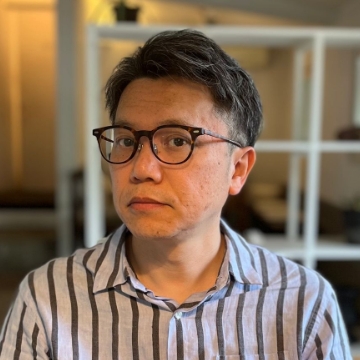
- Yoshiki Nakamura
-
- Chief of Production Section, Tokyo Bunka Kaikan
- Since 2002, Yoshiki Nakamura has produced various concerts at the Tokyo Bunka Kaikan under comprehensive guidance by the then president, the late Akira Miyoshi, regarding production theory and music production.
After transferring to the Tokyo Metropolitan Theatre, he has started a partnership with the Yomiuri Nippon Symphony Orchestra for opera co-production to create a total of 14 works. He is also engaged in activities to promote collaboration between theaters and concert halls nationwide; particularly, he serves as a chair of Music Division, Liaison Council of Theaters and Halls in Japan (a group of innovative theaters).
Breakout Session 3
Improving Accessibility and the Future of Cultural Facilities
- Date and Time: November 3 (Sun, National Holiday)10:00 a.m. – 11:30 a.m.
- Venue: Conference Room G502
This session will reflect on initiatives by the Tokyo Metropolitan Government, the Tokyo Metropolitan Foundation for History and Culture, and the National Museum of Emerging Science and Innovation. Experts deeply involved in promoting accessibility in Japan will explore the role of "cultural facilities" as places of cultural belonging brought about by increased accessibility.
- Speaker
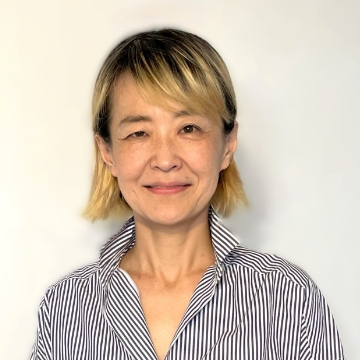
- Yuriko Komai
-
- Coordination Director, Project Coordination Division, Project Department, Arts Council Tokyo
- Yuriko Komai has been in her current position since 2024, overseeing the improvement of accessibility across all metropolitan cultural facilities. Since 2007, she has been involved in facility management, corporate operations, and project production for cultural facilities. Throughout this time, she has become acutely aware of the closed-off nature and various barriers present in the arts and cultural facilities. This year marks the tenth year of her exploration into questions such as “What are barriers?” and “How can we make these facilities accessible to everyone?” while working on both facility and project aspects. She aims to continue making immediate improvements while envisioning the future.
- Speaker
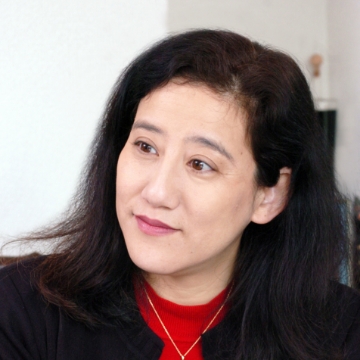
- Chika Sekine
-
- CEO & Senior Fellow, UDIT Inc.
- In 1993, Chika Sekine established the SNS Center at IBM Japan, supporting the use of ICT by people with disabilities and the elderly. In 1998, she founded UDIT Inc. (Universal Design Information Technology Research Institute), where diverse employees work entirely remotely to promote universal design. Since 2012, she has been a professor at the Faculty of Policy Studies at Doshisha University (visiting professor from 2017 to 2023). Her publications include “The Power of Universal Design” (Productivity Press) and “Towards an Inclusive Society” (Iwanami Shoten). In “Slow Ubiquitous Life” (Jiyusha), she uses the backcasting method to depict a future where ICT gently supports people in small communities, presenting an ideal future in the form of a novel.
- Speaker
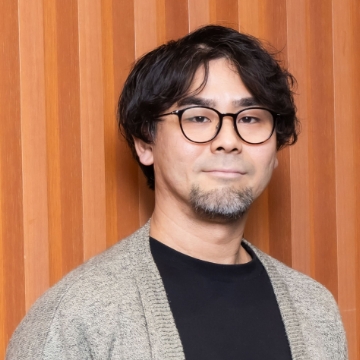
- Kodai Sano
-
- Science Communicator Accessibility Project Office of Science Communication, National Museum of Emerging Science and Innovation
- Kodai Sano is responsible for planning and researching permanent exhibitions such as “Nanairo Quest: Stories of Living with Robots” and “Hello! Robot,” as well as directing sign language video production for “Nobel Q.” He also plans, manages, and facilitates exhibition-related events. Additionally, as a member of the Accessibility Promotion Project, he is involved in developing and conducting tours for visually impaired individuals and collaborating with people with disabilities to develop exhibitions.
Breakout Session 4
Art Addressing Dementia
- Date and Time: November 3 (Sun, National Holiday)12:30 p.m. – 2:00 p.m.
- Venue: Conference Room G502
A pioneering physician from Taiwan in the field of social prescriptions for dementia patients will join a social worker to explore ways to create a society that does not treat people with dementia as outsiders. Together, they will discuss the role art can play in encouraging the social participation of those living with dementia.
- Speaker
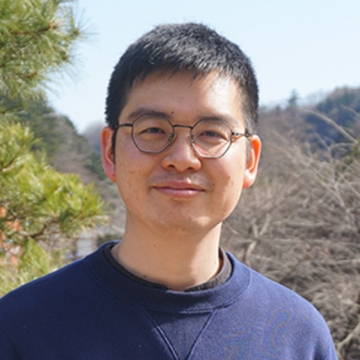
- Hayato Fujioka
-
- Curator, Tokyo Metropolitan Art Museum
- Completed master’s course at Central Saint Martins, University of the Arts London. Since 2018, Hayato Fujioka has served as a project assistant professor at the Global Art Practice, Graduate School of Fine Arts, Tokyo University of the Arts, being involved in a wide range of cultural projects as a researcher, curator, and filmmaker. In 2021, he was put in charge of Creative Ageing Zuttobi, a project aimed at the super-aged society in the framework of art communication programs at the Tokyo Metropolitan Art Museum. His activities include research on social prescribing in museums and design of programs for people with dementia and their families.
- Speaker
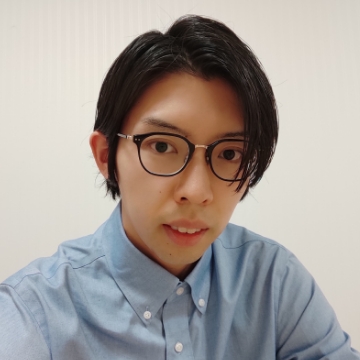
- Ken Saeki
-
- Social Worker, Dementia Community Support Promoter at Horai Community Comprehensive Support Center
- Ken Saeki has been working as a social worker and dementia community support promoter at a community comprehensive support center since 2018. He conductsdementia cafes, dementia family education programs, and dementia family support groups.
He has participated in the TURN LAND program since 2022, hoping to experiment with creating a place where being a person with dementia itself is a socially valuable existence. He continues to create opportunities for people with dementia and people without dementia to work together, and in doing so, working with people in the community to consider how society should be so that people with dementia are not treated as “others”.
- Speaker
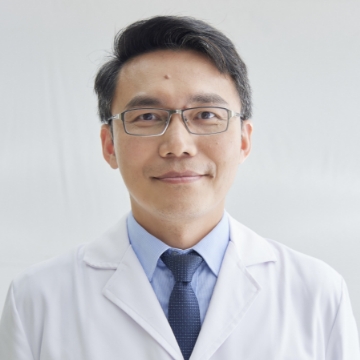
- Liu Chien-Liang
-
- Director, Dementia Center, Taipei City Hospital Chief, Division of Neurology, Taipei City Hospital
- Dr. Chien-Liang Liu is a certified specialist in neurology and geriatric medicine. He possesses substantial experience collaborating with the community to advance integrated dementia care, emphasizing autonomy, dignity, respect, and quality of life. In recent years, he has actively championed social prescriptions, partnering with museums, symphony orchestras, zoos, theaters, and universities to bolster public health autonomy, foster stronger community ties, and promote greater social engagement.
- Moderator
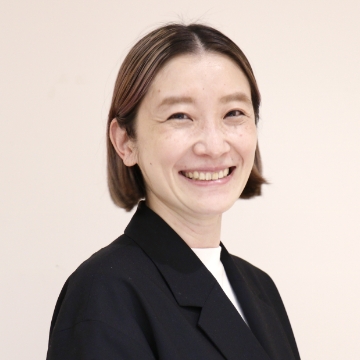
- Kazumi Kumagai
-
- Curator, Chief of Learning and Public Projects, Tokyo Metropolitan Art Museum
- Graduated from Hitotsubashi University, Graduate School of Language and Society, and engaged in art and communication projects at the Tokyo Metropolitan Art Museum from 2013, and assumed current position in April 2022. In charge of “BENTO Obento Exhibition - Eat, Gather, Connect Design” (2018) and “Ueno no Soko Kara ‘Hajimari, Hajimari’ Araki Tamana Exhibition” (2023). She oversees projects that collaborate with people of various backgrounds, from children to the elderly (“Tokyo Metropolitan Art Museum x Tokyo University of the Arts Tobira Project,” “Museum Start i-Ueno,” and “Creative Ageing Zuttobi”).
Breakout Session 5
How to Create Inclusive Spaces
- Date and Time: November 2 (Sat)10:00 a.m. – 11:30 a.m.
- Venue: Conference Room G510
The session will focus on Yokohama's Studio oowa, a project aimed at creating spaces for children with Down syndrome, in collaboration with artists. The discussion will cover the prospects revealed through Studio oowa's activities and the potential created by networks between parents and support staff.
- Speaker
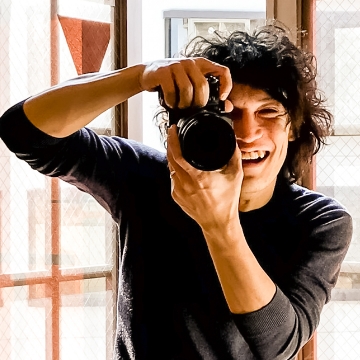
- Hajime Kato
-
- Photographer
- Owner of Studio oowa
- Born in Kanagawa Prefecture in 1984. Based on the concept of recording, documenting, and archiving, Hajime Kato has directed many collaborative photography projects with artists and creators, as well as medium-to-long-term projects for companies or welfare institutions. In 2022, he opened Studio oowa in his hometown of Yokohama. As his own art project, he seeks ways to create new spaces, including collaborative projects between intellectually disabled children and artists. He is a father of three children, the eldest son being born with Down syndrome. Representative of tati.LLC, director of oowa Inc.
- Speaker
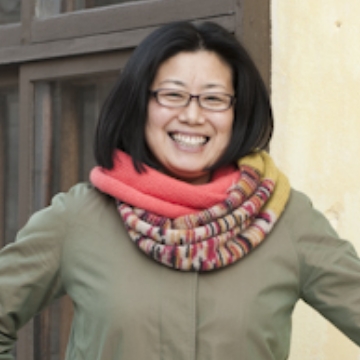
- Mami Odai
-
- AIR Director of Sapporo Teniinyama Art Studio
- Born in Hiroshima in 1966, now lives in Sapporo. In the 1990s, Mami Odai started planning and operating projects to work mainly with sound artists under the name of LOOK AT MUSIC. She organized art event BONUS in the South Dining Room of Komaba Dormitory, The University of Tokyo, Osaka City Central Public Hall, Uplink (Tokyo), and other venues. After that, she was engaged in various collaborative activities with artists. Since 2003, she has taken on a managerial role as an Artists in Residence (AIR) project designer, in-residence production and research coordinator, and program director, while working on the development, improvement and survey research of infrastructure (function, structure, situation) to support AIR projects as well as other background cultural and artistic activities.
Breakout Session 6
What It Takes to Create an Inclusive Theater
- Date and Time: November 2 (Sat)12:30 p.m. – 2:00 p.m.
- Venue: Conference Room G510
Theaters both in Japan and abroad are actively working on initiatives to allow a more diverse range of people to experience, create, and showcase performances. A stage technician working on the front lines of inclusive theater production and a researcher focusing on the creative expression of individuals with diverse backgrounds, such as those with disabilities, will discuss what is needed to create an inclusive theater.
- Speaker
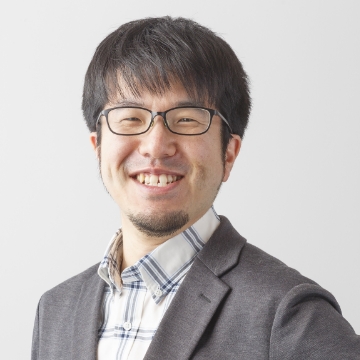
- Yuichiro Nagatsu
-
- Associate Professor, Graduate School of Design, Kyushu University
- Associate Professor, Faculty of Design, Kyushu University (Cultural Policy and Arts Management)
Yuichiro Nagatsu is a researcher, educator, and coordinator in socially arts management and cultural policy. His research has involved fieldwork and action research on artistic practice with people with disabilities, mainly in the fields of theatre and dance. In practice, he has worked as a workshop coordinator and facilitator for theatre and dance, and he has been involved in the production such as working as a dramaturg for a theatre performance. He completed his doctorate at the Graduate School of Music at Tokyo University of the Arts in 2013 with a dissertation that involved fieldwork into the performing arts activities of people with disabilities.
- Speaker
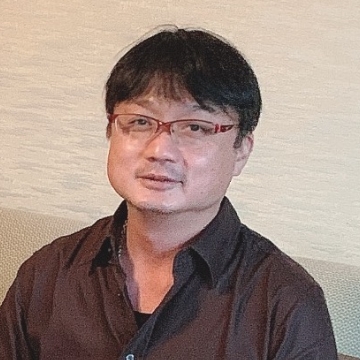
- Toru Hirai
-
- KANAGAWA ARTS THEATRE Technical Department
- After working as a freelance stage director, Toru Hirai joined stage technical staff at the Saitama Arts Theater in 1997 to be involved in stage production both in Japan and abroad, including performances produced by Yukio Ninagawa, Juichiro Takeuchi, and other directors; particularly, he collaborated with Jenny Sealey and Ryohei Kondo & Handles. In 2015, he lived in UK as an overseas trainee of the Agency for Cultural Affairs and studied theatre technology and social inclusion. After returning to Japan, he further studied social inclusion through involvement in performances at the BiG-i International Communication Center for Persons with Disabilities. In 2019, he joined the Kanagawa Arts Theatre to work as a production manager.
Breakout Session 7
Sign Language Interpretation of Art by Deaf People: Learning from the British BSL Guide
- Date and Time: November 3 (Sun, National Holiday)10:00 a.m. – 11:30 a.m.
- Venue: Conference Room G510
This session will explore how the British Sign Language (BSL) guide, a tour run by the deaf in the UK, can inform approaches to the appreciation of arts and culture in Japan. The discussion will also consider how deaf people use sign language to discuss art and how they might ideally engage with cultural institutions like museums in the future.
- Speaker
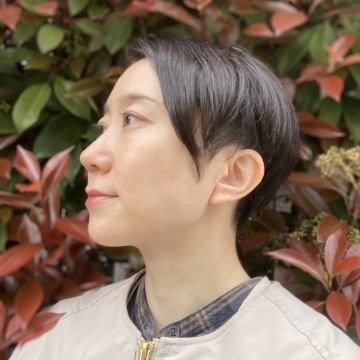
- Natsumi Kanno
-
- Artist
- Researcher
- Director of Re; Signing Project
- Natsumi Kanno founded the "Re; Signing Project," an art project that explores new possibilities for artistic expression by Deaf artists and in May 2023, held the exhibition "〜 People who perceive the world through sight," which reconsiders the body and senses from the perspective of those who are Deaf. Working as a community manager of "5005," which is a working space based on sign language and visual language, she has been involved in several art projects and created artworks on the theme of the relationship between language, culture, and physicality.
- Speaker
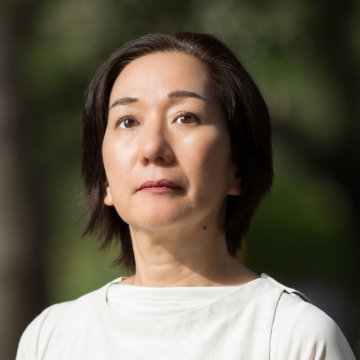
- Chisato Minamimura
-
- Performance Artist
- BSL Art Guide
- Based in London, Chisato Minamimura has created, performed and taught internationally and is currently a Work Place artist at The Place. Minamimura trained at Trinity Laban in London and holds an MA from Yokohama National University. Minamimura approaches choreography and performance making from her unique perspective as a Deaf artist, experimenting with and exploring the visualisation of sound and music. By using dance and technology, Minamimura aims to share her experiences of sensory perception and human encounters.
Minamimura is currently touring Scored in Silence, and her new work, Mark of A Woman.©Mark Pickthall
Breakout Session 8
Accessibility without limits; Case studies from the Rijksmuseum Amsterdam
- Date and Time: November 3 (Sun, National Holiday)12:30 p.m. – 2:00 p.m.
- Venue: Conference Room G510
A case study of defining accessibility and addressing accessibility issues at the National Museum of Amsterdam will discuss the accessibility expectations of museums.
- Speaker
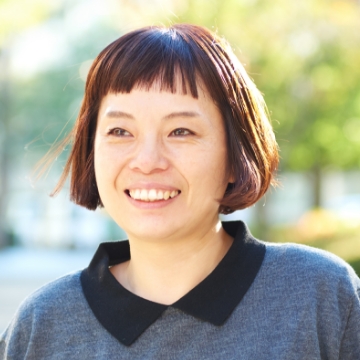
- Maiko Sato
-
- Art/Museum Educator
- Maiko Sato is a freelance art and museum educator. She has worked at the Contemporary Art Center, Art Tower Mito, and Tama Art University in Japan. In 2021, Maiko was awarded the Agency for Cultural Affairs Program of Overseas Study for Upcoming Artists. This grant enabled her to move to the Netherlands to research topics of inclusivity and diversity in the art field and museum education. In addition to her research, she has also interned at the Fifth Season in Amsterdam, where she conducted an Artist in Residency program at a psychiatric hospital. Currently, she is completing her master's degree in Applied Museum and Heritage Studies at Reinwardt Academy, Amsterdam University of Arts.©Asako Suzuki
- Speaker
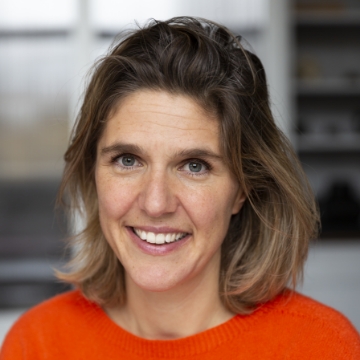
- Cathelijne Denekamp
-
- Manager Accessibility & Inclusion, Rijksmuseum
- forefront of making this institution truly inclusive is Cathelijne, who is committed to ensuring that all visitors and employees experience the museum on equal footing, feeling welcome and recognized.
Cathelijne's work spans across physical, social, and digital accessibility, focusing on creating an environment where everyone can participate and feel a sense of belonging. Her efforts include making the museum a more accessible employer and ensuring diverse representation within the collection. This holistic approach aims to build a solid foundation for the Rijksmuseum to be a museum for everyone.
Her philosophy is simple yet profound: an accessible museum is a better museum for all. To share the Rijksmuseum’s journey towards accessibility, Cathelijne authored a book, "Accessibility Without Limits - Rijksmuseum," Accessibility without limits - Rijksmuseum. which chronicles the strides taken and the lessons learned in this ongoing mission.©Merel Brugman
- Moderator
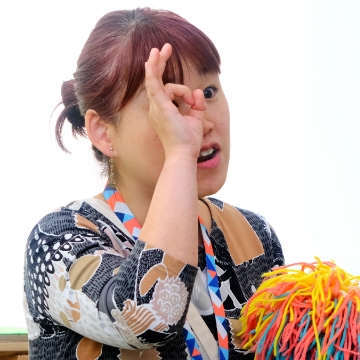
- Kasumi Yamaki
-
- Curator, Museum of Contemporary Art Tokyo
- After working in exhibition planning and educational programs at the Tokyo Metropolitan Teien Art Museum, Kasumi Yamaki assumed her current position in 2018. Based on her experience gained while living in the Netherlands in 2020-2022, she arranged a number of exhibitions as a practice of decolonization and demarginalization, such as “How I Feel is Not Your Problem, Period” in 2023 and “Where My Words Belong” in 2024. She is interested in providing access to information and facilitating dialog for people with visual or hearing impairments and people from different cultures.
Communication Lab
What Does "Touching" Mean?
- Workshop
- Exhibition
- Supervisor
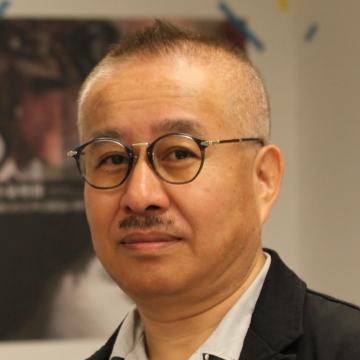
- Kazuji Mogi
-
- Professor, Faculty of Letters, Atomi Univercity
- Specialised in art education and inclusive art education.Born 1956 in Gunma Prefecture, Japan. Completed a master's degree in design at the Graduate School of Art and Design, University of Tsukuba. Completed a PhD in Information Communication, Graduate School of Art and Design, Kyushu Institute of Design. Doctor (Arts and Engineering). Formerly lecturer and assistant professor at the Faculty of Education, Kagoshima University, and professor at the Faculty of Education, Gunma University. In addition to research on Rudolf Steiner's art education and workshops as comprehensive learning, he is currently conducting theoretical and practical research on inclusive art education.
- Supervisor
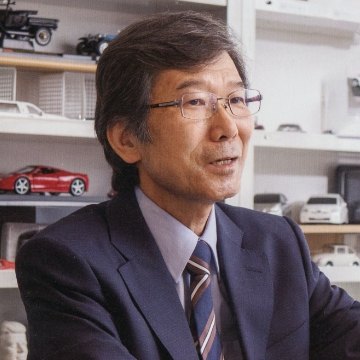
- Susumu Ohuchi
-
- Visiting Researcher,Italian-Japanese Research Institute, Seibi Gakuen Colledge
- Susumu Ouchi's specialisations include education for the visually impaired and inclusive education in Italy. Runs the ‘Library of Teaching Materials for Hands and Eyes’. As the Tokyo branch of Italy's Museo Anteros, she pursues the possibilities of seeing with the hands, for example by introducing paintings adapted in a semi-3D format. He is the author of Inclusive Art Learning for the Visually Impaired (editor, Gears Kyoiku Shinsha, 2021) and translator of Full Inclusive Education in Italy (supervisor, Akashi Shoten, 2022).
My World, Your World
- Workshop
- Exhibition
- Supervisor
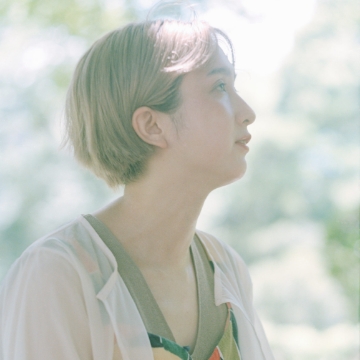
- Natsumi Wada
-
- interpreter
- researcher
- Raised by Deaf parents with sign language as Natsumi Wada's first language, she was drawn to the possibilities of expressing herself with her hands when she entered university. She is exploring the possibilities of sensory media through research into visual language and sense from individual’s perception of worlds. Doctoral student and Researcher in Design at Politecnico di Milano. In 2016, she qualified as a sign language interpreter.
Convey and Connect! Plain Japanese (Tokyo Metropolitan Foundation “TSUNAGARI”)
- Workshop
- Exhibition
- Planning
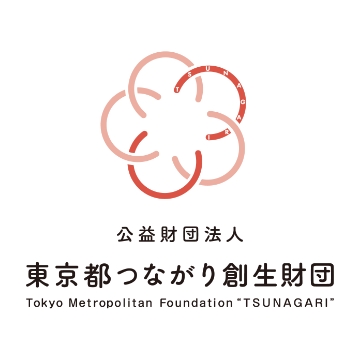
- Tokyo Metropolitan Foundation “TSUNAGARI”
- Established by the Tokyo Metropolitan Government in October 2020 as an organization that supports the revitalization of local communities by creating connections between people through the creation of a multicultural society and mutual aid society. As one of the projects of the Multicultural Affairs Division, the organization is engaged in the dissemination of Plain Japanese.
Inter-Lingual Escape Game: "CAN YOU HELP THE ANDROID?"
- Puzzle-solving Game
- Planning
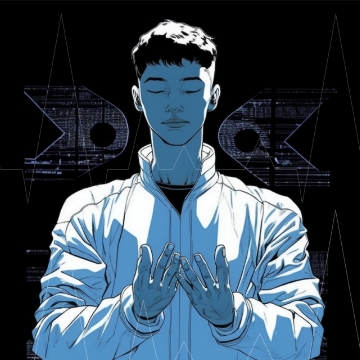
- Igengo Lab.
- Igengo Lab. is dedicated to exploring and proposing new forms of communication that transcend language barriers. It focuses on creating ways to convey thoughts and emotions to others, regardless of the language used. The lab organizes and offers experiential entertainment, such as Inter-lingual escape games and immersive theater, using sign language. By doing so, it aims to foster deeper understanding and more accessible communication in society.
Showcases
Carmen Papalia × Coco Tape
- Photography and Film Work
- Speaker
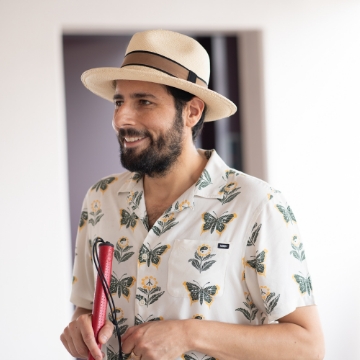
- Carmen Papalia
-
- Artist
- Born in 1981 in Canada. Based in Vancouver. Engages in non-visual social practices through production and attempts to access public spaces, art institutions, and visual culture.©Hajime Kato
- Collaborator
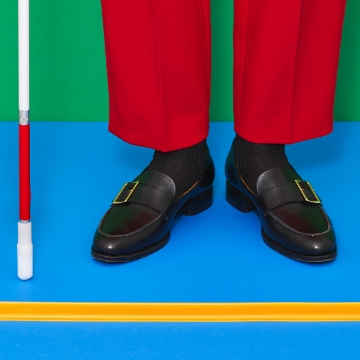
- Coco Tape
- COCOtape guides the visually impaired in their walking.It is a 48 mm wide vinyl chloride indoor-only tape. You can carry it in your bag anytime and anywhere, and the tape can be applied where and when needed to support the independent mobility of the visually impaired.
Screening and Talk: Documentary "Homescape Dialogue"
- Screening and Talk
- Speaker
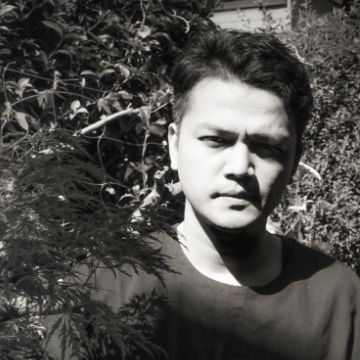
- Yuji Sakamoto
-
- Filmmaker
- Born in Fukushima prefecture.Yuji Sakamoto explores ambiguous definition of "home" that emerges in relations between people and places by capturing unnoticed "voices" in everyday life on camera.
- Speaker
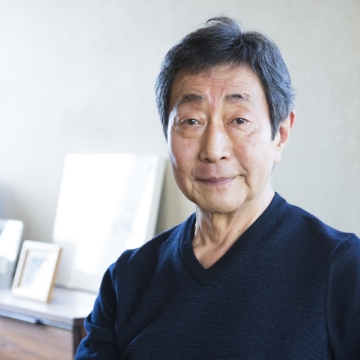
- Takashi Serizawa
-
- Executive Director, P3 art and environment
- Born 1951 in Tokyo. After graduating from the Mathematics Course at the Faculty of Science, Kobe University, and the Architecture and Building Science Course at the College of Engineering, Yokohama National University, Takashi Serizawa joined Regional Planning Team Assoc., Inc., where he was engaged in studies and projects related to ecological planning. His involvement in a project to build a new temple for the Tochoji zen temple in Yotsuya, Tokyo, inspired him to establish P3 Alternative Museum Tokyo (today “P3 art and environment”) in 1989. Initially based in a lecture hall in the basement of the Tochoji temple, since 1999 P3 has been involved with a variety of art and environment-related projects on an international scale, without having a fixed site itself. Serizawa served as general director for the Tokachi International Contemporary Art Exhibition “Demeter” (2002), secretary general for the Asahi Art Festival (2002-2016), curator for the Yokohama Triennale 2005, general director for the Beppu Contemporary Art Festival “Mixed Bathing World” (2009, 2012, 2015), director for the Saitama Triennale 2016, and supervisor for Saitama Triennale 2020. Between 2012 and 2021, he headed the Design and Creative Center Kobe (KIITO).©忽那 光一郎
- Speaker
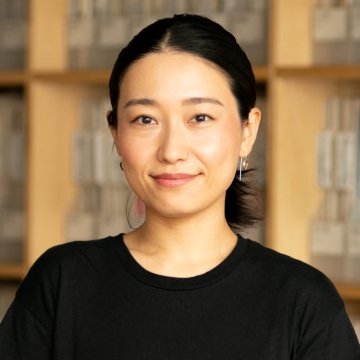
- Tae Yoshihara
-
- Art manager
- Art director
- Born in Hyogo Prefecture and graduated from Kyoto University of the Arts. She completed her master’s at Osaka City University’s Graduate School for Creative Cities. Yoshihara managed art projects at the BEPPU PROJECT and served as a Program Officer at the Arts Council Tokyo. In April 2022, she became independent. Currently, she is the Project Director of Tatsuo Miyajima’s "Sea of Time - TOHOKU," a part-time lecturer at Joshibi University of Art and Design, and the Project Manager at "Metote Lab."
Shokichi Shunputei: Rakugo Performance
- Rakugo
- Speaker
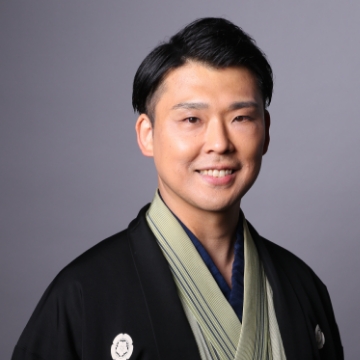
- Shokichi Shunputei
-
- rakugo performer
- The first Rakugo performer ever to graduate from the University of Tokyo. During his university days, Shokichi Shunputei won the All Japan Student Rakugo Championship and the Sokuden Grand Prize, and was the only Japanese to win the President's Grand Prize at the University of Tokyo upon graduation.
After graduating from the university, he was introduced to Shota Shunputei, a popular host of “Shoten” and a new rakugo master. After a period of rigorous training, he was promoted to the rank of Shinuchi in 2021. Currently, he is not only active on the stage, but also as a weather forecaster and TV program host, among other wide-ranging activities.
- Collaborator
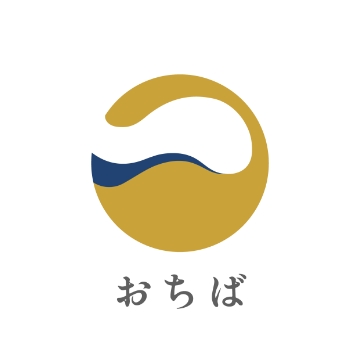
- ADD.LIVE Architects + Rakugo Space Ochiba
- ADD.LIVE Architects:
A team of architectural unit of Yuto Takahashi and Hibiki Honda. Their designs are carefully crafted with a flexible and, in a sense, “improvisational” rhythm.
Rakugo Space Ochiba:
Rakugo Space Ochiba is a project to design a place of “Ochi (punch-line)” in urban space based on the concept of “bringing the scenery of Rakugo to the city. The project aims to create a new everyday experience by bringing the original landscape of rakugo, which once began as small stories told on the side of the road, to the modern city.
Sachi Hasegawa (Sculptor)
- Stone Sculpture Works
- Speaker
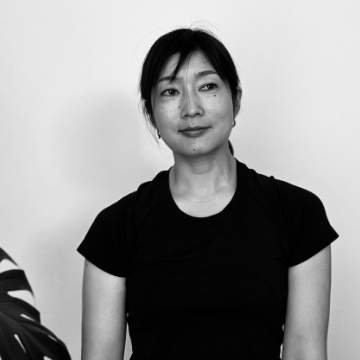
- Sachi Hasegawa
-
- Sculptor
- Associate Professor, Musashino Art University
- Graduated from Musashino Art University Graduate School, and has held solo exhibitions at hino gallery and other venues since 2008.
Major solo exhibitions: “Lobby Exhibition Ley Line - Sculpture by Sachi Hasegawa” at Hiratsuka Museum of Art,
Major group exhibitions: “Drawing Lines in Space: Sculpture and Drawings” at Hiratsuka Museum of Art and others, “A Stone for Everyone: A World of Touch with the Eyes and Hands” at Vangi Sculpture Garden Museum, “Omni Sculptures” '21, “River and Child” at Musashino Art University Museum, ANOMALY, and others.
Major Collections: Hiratsuka Museum of Art, Ashigarashita-gun, Kanagawa Prefecture.
Yasuhiro Suzuki (Artist)
- Artworks
- Speaker
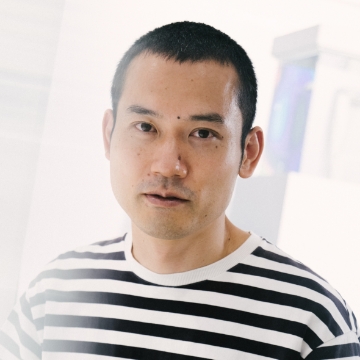
- Yasuhiro Suzuki
-
- Artist
- Yasuhiro Suzuki is an artist who was born in 1979. He continues to question our views on the world through works that take fresh looks at things we are accustomed to seeing in everyday life. He produces art that infinitely expands our perception and awareness through the medium of familiar articles, as exemplified by Perspective of the Globe Jungle, a video installation using playground equipment from a park, and Zip-Fastener Ship, which “opens up” the Seto Inland Sea. He exhibits his works inside and outside Japan at museums, in public space on commissions, and other venues. His main solo exhibitions were Neighborhood Globe at Art Tower Mito in 2014, Spontaneous Garden at Hakone Open-Air Museum in 2017, and BLINKING at Tikotin Museum of Japanese Art in Israel in 2021. He gives form to things hidden from the eye at the particular place and focuses on scenes that arise through chance encounters with visitors.©Timothée Lambrecq
Katsuya Ise (Artist)
- Knitted Works
- Speaker
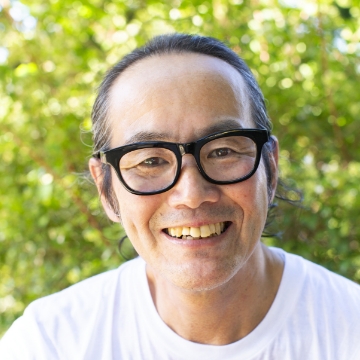
- Katsuya Ise
-
- Artist
- Professor, Joshibi College of Art and Design
- In 1986, Katsuya Ise completed the Graduate School of Fine Arts at Tokyo University of Arts.
In the “Macaroni” series, which began in 1988, he created works from a sampling of primitive and animistic figures (images that are somewhere between spotty lines and letters). In recent years, he has also made full use of digital technology to create not only two-dimensional works, but also bronze sculptures, landscaping, knitting, and a wide variety of other works, which continue to expand and transform. His works have been shown in solo and group exhibitions. He also participates in national and international projects.©Ayaka Umeda
Accessibility Initiatives
- Photography Works
- Speaker
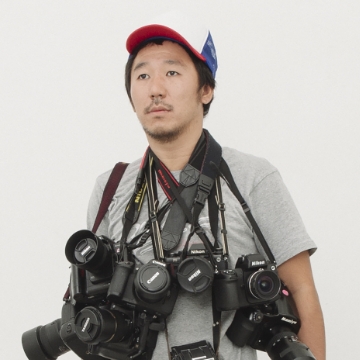
- Masanori Ikeda
-
- Photographer
- In 1999, Masanori Ikeda began showing his work at his own “Dragged Out Studio,” and in 2006 he established the photography office “YUKAI”. In 2021, he moved his studio to the Kanda Port Building, where he is in charge of the building's creative direction, and is also involved in street projects that are planned as social experiments and urban development in Kanda. Recent exhibitions include “Masanori Ikeda Photography Exhibition: Towns and Cities Connected by Photography - Otemachi, Kanda - Tokyo Biennial Beginning Exhibition” (2023), and since 2015, he has also participated in TURN. His major publications include the photo books “SAUNA” and “Inasena Tokyo.
Screening and Talk: Documentary "Utau Kanata"
- Screening and Talk
- Speaker
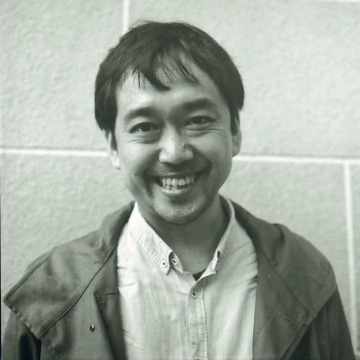
- Matsui Itaru
- Born 1984. Itaru Matsui explores the relationship between people, the world and images. His film "Only I Can Hear", in which hearing children with deaf parents search for a place to belong between the world without sound and the world where they can hear, was released and screened at film festivals abroad and in about 40 mini-theatres across Japan, where it received a strong response. The film won the Documentary Grand Prize at the 2022 Agency for Cultural Affairs Film Awards. His documentary production journal "Hito ni Moguru (Diving into People)" is being serialised by Shinyodo.©亀山 亮
International State of Accessibility
- Lecture
- Speaker
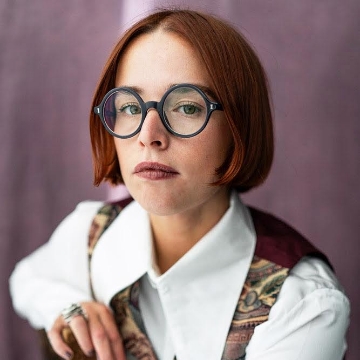
- Linda Rocco
-
- Indipendent Curator and Research Tutor at the Royal College or Art
- Dr Linda Rocco is a London-based contemporary art curator and researcher. She has extensive experience in curating exhibitions, public commissions, programmes, and residencies, with established international organisations such as Delfina Foundation, Yinka Shonibare Foundation, Goethe Institut, and the Mayor of London. Her curatorial practice intersects with interdisciplinary research in emerging technologies, social systems and networked organisation, and alternative economies, to propose more distributed and accessible infrastructural futures.
Mugiwara-ya with Conova
- Live Video
- Speaker
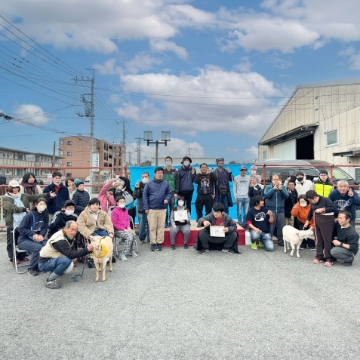
- Mugiwara-ya
- Mugiwara-ya's facility, which opened in May 2015, provides services under the Comprehensive Support for Persons with Disabilities Act, specifically through Employment Continuation Support Type B and Daycare services. In Type B, we engage in a wide range of activities, including food processing, breeding and selling medaka fish, weeding, art projects, and contract work. The Daycare services include outings to local libraries, museums, parks, and shopping streets. While the aim is to keep physically active, we also strive to create opportunities for the community to recognize the presence of people with disabilities among them.

